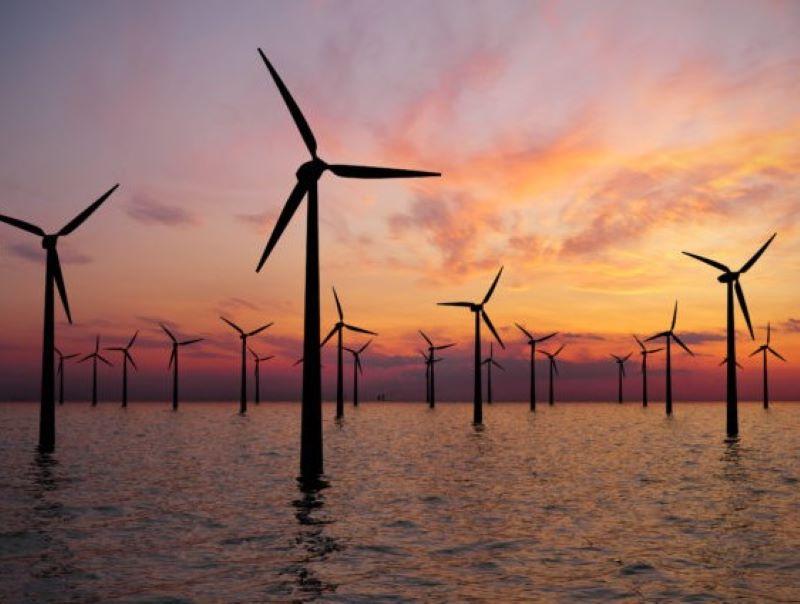Tulane 2nd Offshore Wind Conference set for January 19
Louisiana is uniquely poised to take advantage of the wind power available in the Gulf of Mexico, power that can produce 510,000 megawatts of offshore wind energy each year.
Last fall, the federal government tried to auction the leases for more than 300,000 acres in federal waters off the Gulf, but only one bidder secured a lease for more than 100,000 acres off the coast of Lake Charles, La.
The potential for that lease as well as where the Gulf Coast will see growth and benefits is the subject of the second annual Tulane Offshore Wind Conference which takes place Jan. 19 at the Port of New Orleans Administration Building, 1350 Port of New Orleans Place, from 8 a.m. to 5 p.m. Among the issues discussed will be the federal and state leasing regulations and the permitting process, financing projects and the supply chain. The conference is offered at no charge.
“There is an incredible amount of uncapitalized wind power available in the Gulf,” said Interim Dean Sally Richardson, who practiced energy law at Skadden, Arps, Slate, Meagher & Flom in Washington, DC, before joining the faculty at Tulane Law School. “We are on the precipice of seeing the real capability of what the Gulf can produce in terms of wind energy.”
See the Conference Agenda here.
Register for the Conference here.
The keynote will be given by Amanda Lefton, Vice President of Development, East, for RWE, who transformed the offshore wind industry in the U.S. during her tenure as the Director of the Department of the Interior’s Bureau of Ocean Energy Management (BOEM). Lefton is leading RWE in developing its offshore project along the East Coast. In her role at BOEM, Lefton led the development and implementation of the Biden Administration’s ambitious offshore wind agenda, including all federal offshore wind leasing, project reviews, and policy and regulatory matters.
RWE, will be the conference keynote.
Prior to RWE, Lefton served as the Senior Policy Director of Energy and Climate at Foley Hoag and before that was the First Assistant Secretary for Energy and Environment for the former Governor of New York where she led the State’s climate and environmental initiatives and managed a portfolio of 12 agencies and authorities.
Tulane’s Center for Energy Law is firmly establishing the law school as the premier law program in wind energy in the Gulf South. Last year’s first-ever wind conference was standing-room only, with hundreds of practitioners, industry leaders and the state’s governor in attendance.The governor touted an industry-ready workforce, infrastructure and other benefits that set Louisiana apart to help build the wind energy sector in the Gulf.
Louisiana is already ahead of other regions in the country because of the infrastructure and expertise it brings from its prolific oil and gas industry. Many of the skills needed in the offshore oil and gas industry are directly transferable to building and servicing wind farms. Offshore wind leasing in the Gulf will test whether the region’s superior oil and gas supply chain, technical know-how, and skilled offshore workforce can accelerate the development of offshore wind beyond that of the Atlantic and Pacific coasts.
Last August, the U.S. Bureau of Ocean Energy Management (BOEM), the federal agency that oversees offshore oil, gas, and wind permitting, initiated a process that led to the winning bid of its first Gulf offshore wind lease. However, hundreds of thousands of acres – through two additional leases – remain available in the Gulf.
The legal and market issues that will impact the industry is the focus of Tulane’s conference, and will address the long-term viability of the Gulf region in this field.
Even though the Gulf has weaker wind speeds compared to other wind energy areas nationally, the Gulf makes up for its relatively weak winds with other attributes. Its shallow waters reduce the need for tall, expensive turbines, and its warm temperatures and smaller wave heights will make construction and maintenance relatively easy and inexpensive. Port terminals and wharves are already located near the strong offshore wind resources. Some offshore oil platforms may gain a second life as wind energy substations or serve in other support roles.
“There are so many advantages for producing wind energy in the Gulf,” reiterated Dean Richardson. “The ability to reuse old platforms or to have high-paying manufacturing jobs for wind turbines in southern Louisiana, these are all huge advantages for the State. And Tulane Law School is poised to be the leader in wind energy law which is an exciting place to be.”
Register for the conference here.


